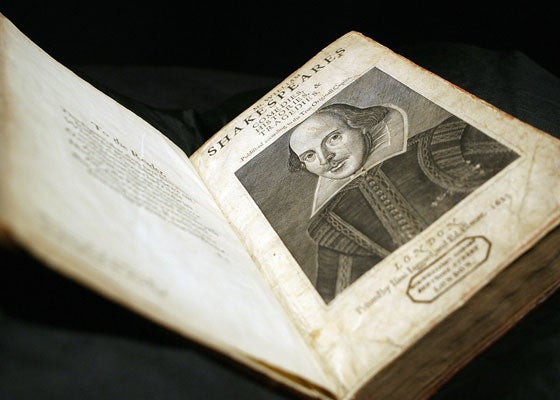
Your support helps us to tell the story
From reproductive rights to climate change to Big Tech, The Independent is on the ground when the story is developing. Whether it's investigating the financials of Elon Musk's pro-Trump PAC or producing our latest documentary, 'The A Word', which shines a light on the American women fighting for reproductive rights, we know how important it is to parse out the facts from the messaging.
At such a critical moment in US history, we need reporters on the ground. Your donation allows us to keep sending journalists to speak to both sides of the story.
The Independent is trusted by Americans across the entire political spectrum. And unlike many other quality news outlets, we choose not to lock Americans out of our reporting and analysis with paywalls. We believe quality journalism should be available to everyone, paid for by those who can afford it.
Your support makes all the difference.What courses? English; applied English; English literature; English language; creative language.
What do you come out with? A BA
Why do it? 'The world is full of signs,' the critic Roland Barthes once wrote, 'but these signs do not all have the fine simplicity of letters of the alphabet or motorway signs: they are infinitely more complex.' A degree in English will teach you to read books, critically and imaginatively, in prose and verse; but it will also teach you to interpret the signs, and the stories, that shape our everyday lives, from advertisements on the street to the information on the internet. If you want to be a good reader, in both the simple and more complex senses, this is the course for you." - Dr Matthew Beaumont, senior lecturer, department of English, University College London
What's it about? “Butt I alreddee no how 2 speek Inglish,” I hear you say. But surprisingly, this isn’t like other language degrees. Your study will be split between language and literature, and most courses focus on the latter, exploring texts and movements from medieval epic poetry to modern classics, and the context from which they spawned. Think Chaucer, Shakespeare and Dickens, as well as Toni Morrison, Ian McEwan and Martin Amis. Don’t be holding your breath for Harry Potter yet, though. If you’re keen to write essays and on improving your use of language, in this course you will have the chance to do both. Linguistically-focused courses look at the origins of language and the way it has changed and is used today. Creative writing courses help you to develop your own craft and follow in the footsteps of the greats.
Study options: Mainly three years BA and four if you’re studying in Scotland. Being an academic subject, there’s not many opportunities for sandwich years, although if studying with a foreign language you’re likely to get to spend a year abroad.
What will I need to do it? An A-level in English language or English literature is a given, and any other humanities or arts subject will only strengthen your application – history and politics are safe bets. With over 2,500 courses being offered across British universities, entry requirements vary widely, although, unsurprisingly, top institutions demand top grades – UCL and Oxford both ask for AAA.
What are my job prospects? Similar to any arts or humanities course really. You started your degree because you love books and the language, and to spend another three years pondering your future career, not because you had a definitive one in mind. Students gain universal skills in communication and informed criticism, and this can lead them to careers in fields such as media, journalism, teaching, marketing, politics and the civil service. According to The Times’ Good University Guide 2012, only 26 per cent go straight into graduate-level jobs, and starting salaries are £18,343 on average. Around a third continue with study and a further third settle for non-graduate-level jobs.
Where's the best to do it? UCL is at the top of the Complete University Guide 2012, followed by Oxford and Durham. Students at UCL are also second when it comes to satisfaction with their course, after Buckingham, and coming just ahead of Loughborough.
Related degrees: History; politics; anthropology; classics; French; linguistics; media and communication; dance, drama and performing arts; journalism.
Join our commenting forum
Join thought-provoking conversations, follow other Independent readers and see their replies
Comments